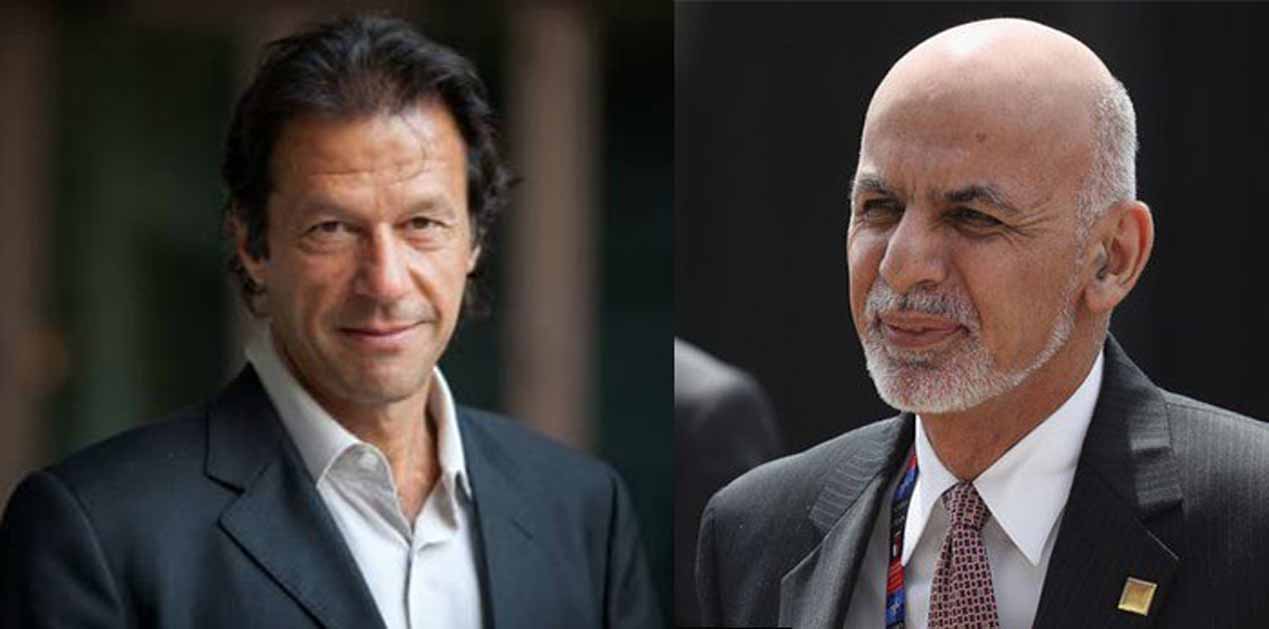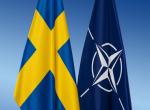Pakistan has transitioned to a new political innings under Imran Khan’s captaincy; Imran Khan became the chosen one with his agenda of Naya Pakistan. On paper the agenda promises a vision of an Islamic welfare state which is going to be corruption free and with a rejuvenated sense of national pride to take the country ahead.
Imran Khan has often criticised previous Pakistan governments in their approaches and understanding of national security and interests of the country. According to him, Pakistan has been a victim of geo-politics, this tendency has become worse due to negligence by earlier governments. In this era of populist leaders, Imran Khan’s emergence has been observed with excitement and expectations in revival of the foreign policy of Pakistan in the domestic sphere. However, the European Union (EU) monitoring team did not find Pakistan General Elections of 2018 a level playing field. And Imran Khan himself is considered much of his own man, a loose cannon regarding his comments against China Pakistan Economic Corridor (CPEC) and US drones strikes.
This article intends to examine and analyse Imran’s perspectives on the issue of Pakistan’s national security with respect to four countries which mainly define the foreign policy objectives of Pakistan. The four countries in alphabetical order are: Afghanistan, China, India and the USA.
Afghanistan
Imran Khan in his victory speech said that peace in Afghanistan meant peace in Pakistan. He added that Afghans have suffered most in the ‘war on terror’, and before that in the Afghan Jihad. However much to his chagrin for peace, Imran has been in controversies due to his avowed support for Islamic insurgents in both Afghanistan and Pakistan. His party and he have never been attacked by Tehrik-e Taliban Pakistan (TTP). On the contrary, he was one of the top political figures to be nominated by TTP for peace talks with the Pakistani Government in 20141. According to him, a military solution with the militants is a small part of larger solutions but a conflict can’t be resolved through military operations alone2.
Ashraf Ghani also signaled his willingness during the Ramzan ceasefire to talk to Taliban in Afghanistan. United States (US) also held talks with Taliban at their office in Qatar. This change of rhetoric against Taliban by parties affected by the conflict is likely to mark increased acceptance of Taliban in Afghanistan. Imran, by siding with the Taliban, has made the right move to come in consonance with military and a larger foreign policy objective of Pakistan to have a pliant if not puppet government in Afghanistan. A loose from of governance where Pashtun led Taliban will enjoy political privileges will not go well with other ethnicities like Tajiks, Hazara and Uzbeks which together constitutes the majority, such division and preference will make the conflict in Afghanistan worse.
Afghanistan and Pakistan have institutionalised their working relationship through Afghanistan Pakistan Action Plan for Peace and Solidarity (APAPPS). Imran’s Government has shown increased confidence in APAPPS3 but past public statements of Imran Khan do not offer much of a hope on how peace in Afghanistan is to be achieved. Imran Khan’s larger objective seems to be more intended to gain popularity as another Pathan from the other side of the border, especially when both the countries have differences in defining the terrorist group on respective soil4. This puts him well with both military and economy of Pakistan when Pakistan is in search of its thirteenth bailout from the IMF5. Imran Khan will treat the problem with Afghanistan as his priority to find reasonable political accommodation with its western neighbour. Ideally, the approach would be to have a durable and affordable relationship with Afghanistan without involving Pakistan military and yet serving its objectives.
China
It will be recalled that in past, Imran Khan had demanded more transparency in CPEC projects; he alleged that Nawaz Sharif deprived the Khyber Pakhtunkhwa Province its due share6. His narrative of corruption infested CPEC projects led to turning down of a bus project in Peshawar which was to be added under CPEC in 2017. Some Pakistan Tehreek-e Insaaf (PTI) activists consider CPEC as a modern day equivalent of East India Company and claim that the money wasted could have been applied on health and education7.
According to Michael Kugelman, the stakes are too high to imperil or even review the CPEC projects as these are of strategic importance for both the countries. Through connectivity projects Pakistan aims to use its geographical location as a transit corridor to retain a balance of power in Asia, and has taken the risk of mortgaging its future to Chinese finance8. Imran Khan led Government has affirmed to accommodate ambitious CPEC projects worth $ 62 billion and broaden its base to include social sector schemes like clean water, health, and technical training of Pakistani youth to generate more employment9. More nuanced signaling by PTI to review the CPEC thus appeared in the Financial Times recently10.
The biggest advantage which China has given to Pakistan for CPEC is in not disclosing the exact details of the MoU which gives Imran Khan and his masters some space to have different perception and make new demands. For Imran Khan it will be to choose between transparency of the CPEC or Sino-Pak indulgence, because the business model with China does not include fair tendering procedures, it rather promotes favored companies11. All told, sooner or later therefore, China will realise that they might suffer the same fate as the USA learned in its war on terror.
India
Relations between Pakistan and India have been plateaued after highs and lows since their division into two independent countries. Both the nuclear neighbors have engaged in two full-fledged wars and regular skirmishes along the border. India has verifiable proof against Pakistan’s harboring and training terrorists who have indulged in murderous attacks on Indian soil as well as in exporting insurgency to the Kashmir region. Pakistan blames India for supporting rebellious elements in Balochistan which however lack credibility. Pakistan’s previous government under Nawaz Sharif accepted that terrorist in Pathankot were Pakistanis. That did not go well with the establishment as the move was intended to improve relations between India and Pakistan, and so he was thrown out. Another contentious issue has been the violations of Indian sovereignty over the Pakistan occupied Kashmir (PoK) through which the CPEC project traverses, and the construction of Diamer-Bhasha Dam therein. The latest incident which triggered acrimony between India and Pakistan was abducting and framing of Indian national Kulbhushan Jadhav. He has been sentenced to death by a Pakistan military court, which has become an international issue after the matter was taken by India to the International Court of Justice (ICJ).
There have been fruitless engagements at various summits like the COP-21, Shanghai Cooperation Organisation (SCO) Summit and the Ufa Meeting. Recently cancelled meeting of foreign ministers on the sidelines of UN was triggered by killing of Indian security personnel by Pakistan-based entities and Pakistan’s release of a series of 20 postage stamps glorifying a terrorist, Burhan Wani12. The new prime minister kept Kashmir as his focal point in his Party’s agenda and manifesto, and even during his first victory speech when he spoke of reviving the obsolete and irrelevant UNMOGIP (United Nations Military Observer Group) in Kashmir, and which defeats the very purpose of bettering bilateral relations13. Imran Khan and his Party, in their manifesto, have committed to solve Kashmir issue within the parameter of UN Security Council Resolution. But as per the Resolution 47 on Kashmir, the first step is to complete Pakistan’s demilitarisation of the PoK, which Pakistan itself has repudiated. This idea of peace is in the same tone in which the earlier governments of Pakistan have been singing.
Imran Khan has urged India to take one step to improve relations, in return of which Pakistan would take two steps. But Pakistan’s proxy warfare on the border has not been stopped. Therefore, such peace proposals from Imran will certainly receive cold reactions from Indian side; his highly ambitious politico- economic diplomacy of improved trade relations also might not work. Equally jarring is the poisoned domestic narrative towards India; there is now a larger scope to sustain that anti-India narrative. Considering the surge of ultra-right wing Islamist parties in 2018 elections, that might not go well in India-Pakistan relations14. Pakistan has committed to flawed promises and only time will tell as to how the bilateral relations will transform in Imran Khan’s era under the shadow of its Khaki Empire.
United States of America
The common perception about USA in Pakistan is that over time 52 percent Pakistanis have come to believe that US was responsible for 9/11 attacks15! This anti-American narrative is where Imran Khan started his agenda for the top post in Pakistan. His Naya Pakistan promises found their motivation on these narratives against the West and America, whereby Pakistan would be liberated from the burden of patron-client relations. According to Imran Khan, Pakistan must maintain mutually beneficial relation rather than the US using Pakistan as a ‘hired gun that has resulted in huge sacrifices from Pakistan’16. He has been a vocal opponent of drone attacks executed by America on Pakistani soil. In the past he had said that he would order shooting down the US drones if he were to become Prime minister17. But on the other hand, a political compromise by Imran Khan seems to be taking shape when he received Mike Pompeo and reiterated support to peace resolution in Afghanistan through political process18. Patience is also running out on US’s side, the recent appointment and presence of Zalmay Khalilzad at a meeting with Imran Khan along with Pompeo proved so. Khalilzad is considered a fierce critic of the double game played by Pakistan19.
While Imran Khan has fallen-in with the establishment to push Taliban towards the helm of running affairs in Kabul, there will be larger US pressure on Pakistan in terms of accountability. US has further pressurised Pakistan by cancelling coalition support fund worth $300 million, while the recent decision by Pentagon to suspend intake of Pakistani officers to IMET (International Military Education and Training courses) will play foul in coordination and cooperation between the two armies and nations. The PTI agenda of mutually beneficial relationship has to glide through the quagmire in Afghanistan where both countries need each other for their own specific purposes.
Pakistan is also a beneficiary of US aid in weapons and ammunitions despite its dubious policy on terrorism. Nevertheless, due to geo-strategic constraints, the ‘mutually beneficial’ line sounds frivolous and except minor adjustments business will have go on between the two. The US would still want to dig-in with newer ways of engagement with Pakistan. Populist leaders like Imran Khan will remain in their bubbles of imagination and the will required and intended at political level would not suffice to change the situation, at least from Pakistan’s end. Pakistan Army (which facilitated Imran’s path to victory in elections) will hold the reins and while still harassing the media and using judiciary to keep away major political contenders like Nawaz Sharif, it would keep everyone convinced that democracy is flourishing in Pakistan20.
End Notes:
- Zahir Shah Sherazi, (February 01, 2014), Taliban nominate Imran, Sami among others to mediate peace talks, https://www.dawn.com/news/1084259
- Hassan Ali, (October 11, 2012), War in Afghanistan is jihad, says Imran, https://tribune.com.pk/story/449938/war-in-afghanistan-is-jihad-says-imran/
- Daily Times, (September 7th 2018), ‘APAPPS, revival of US-Pakistan talks will bode well for Afghan peace’, https://dailytimes.com.pk/294029/apapps-revival-of-us-pakistan-talks-will-bode-well-for-afghan-peace/
- IANS (July, 29, 2018), Afghanistan, not India, will be Imran Khan's priority until 2019
//economictimes.indiatimes.com/articleshow/65185527.cms?utm_source=contentofinterest&utm_medium=text&utm_campaign=cppst https://economictimes.indiatimes.com/news/international/world-news/afghanistan-not-india-will-be-imran-khans-priority-until-2019/articleshow/65185527.cms - Mehtab Haider, (September 28, 2018), Talks begin to determine if Pakistan will seek IMF bailout, https://www.thenews.com.pk/print/373941-talks-begin-to-determine-if-pakistan-will-seek-imf-bailout
- Dawn.com, (December 25, 2016), Dispute over CPEC is with Nawaz-led govt, not with China: Imran, https://www.dawn.com/news/1304419
- Tom Hussain, (July 25, 2018), What will Pakistan’s new leader Imran Khan deliver for China?, https://www.scmp.com/week-asia/politics/article/2157234/what-will-pakistans-new-leader-imran-khan-deliver-china
- The Economist, (22 July, 2017), China makes Pakistan an offer it cannot refuse, https://www.economist.com/special-report/2017/07/22/china-makes-pakistan-an-offer-it-cannot-refuse
- Khaleeq Kiani, (September 10, 2018), Pakistan, China agree to broaden CPEC base, https://www.dawn.com/news/1432000/pakistan-china-agree-to-broaden-cpec-base
- TOI, (September 10, 2018 ),CPEC deals with China 'unfair' to Pakistan, says Imran Khan http://timesofindia.indiatimes.com/articleshow/65753066.cms?utm_source=contentofinterest&utm_medium=text&utm_campaign=cppst https://timesofindia.indiatimes.com/world/pakistan/cpec-deals-with-china-unfair-to-pakistan-says-imran-khan-government-report/articleshow/65753066.cms
- Dipanjan Roy Chaudhury (August 20, 2018), Imran Khan’s choice: Transparency or Sino-Pakistan relations?
//economictimes.indiatimes.com/articleshow/65466508.cms?utm_source=contentofinterest&utm_medium=text&utm_campaign=cppst https://economictimes.indiatimes.com/news/international/world-news/imran-khans-choice-transparency-or-sino-pakistan-relations/articleshow/65466508.cms - Sreemoy Talukdar (September 21, 2018), India-Pakistan meeting cancelled: New Delhi takes right step but should get rid of its naivete on Imran Khan, https://www.firstpost.com/india/india-pakistan-meeting-cancelled-new-delhi-takes-right-step-but-should-get-rid-of-its-naivete-on-imran-khan-5235971.html
- Anil Gupta, (16 July 2014), UN Kashmir mission is obsolete, https://www.dailypioneer.com/columnists/oped/un-kashmir-mission-is-obsolete.html
- Tilak Deveshar, (September 7 , 2018), Pakistan: An Analysis of the Participation of Religious Parties in Elections, 2018, https://www.vifindia.org/article/2018/september/07/pakistan-an-analysis-of-the-participation-of-religious-parties-in-elections-2018
- Gallup Pakistan, (December 18,2015), (2003-2015) 17% increase in Pakistanis who believe that America was responsible for 9/11 attack, http://gallup.com.pk/2003-2015-17-increase-in-pakistanis-who-believe-that-america-was-responsible-for-911-attack/
- GEO NEWS, (Jul 20 2018), US used Pakistan as hired gun, says Imran, https://www.geo.tv/latest/203986-us-used-pakistan-as-a-hired-gun-says-imran
- Rob Crilly, (05 Oct 2012), Imran Khan: I will order air force to shoot down drones, https://www.telegraph.co.uk/news/worldnews/asia/pakistan/9589541/Imran-Khan-I-will-order-air-force-to-shoot-down-drones.html
- AFP, (September 05, 2018), Pompeo hopeful of resetting troubled relationship with Pakistan, https://www.dawn.com/news/1431126
- AFP, ( 5 September, 2018), Zalmay Khalilzad: The blunt veteran leading US peace efforts, https://timesofindia.indiatimes.com/world/south-asia/zalmay-khalilzad-the-blunt-veteran-leading-us-peace-efforts-in-afghanistan/articleshow/65689448.cms
- AFP, (12 September, 2018), Press freedom in Pakistan under pressure by military: Report https://timesofindia.indiatimes.com/world/pakistan/press-freedom-in-pakistan-under-pressure-by-military-report/articleshow/65787153.cms
(The paper is the author’s individual scholastic articulation. The author certifies that the article/paper is original in content, unpublished and it has not been submitted for publication/web upload elsewhere, and that the facts and figures quoted are duly referenced, as needed, and are believed to be correct). (The paper does not necessarily represent the organisational stance... More >>
Image Source: https://www.thenews.com.pk//assets/uploads/updates/2018-08-20/357407_3107471_updates.jpg











Post new comment